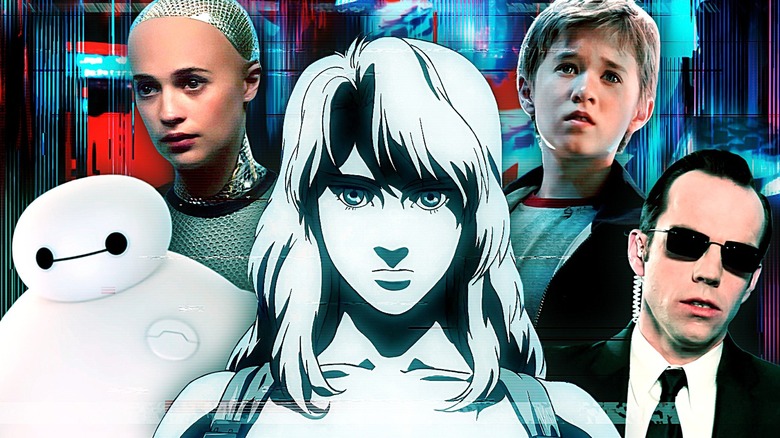
Static Media
Artificial intelligence used to be a longtime science fiction fan's dream, and, to borrow a Mitch Hedberg joke, it still is, too. In fiction, AI occupies a realm of possibility that renews our questions about who and what we are, and dances with theologic philosophies about whether or not we can create synthetic life worthy of a soul. The reality of AI remains a far cry from those visions of Fritz Lang and Isaac Asimov, incapable of independent creation, emotion, or thought.
Generative AI remains a disappointment because it's a fancy PR dodge on the level of the grapeless Grape-Nuts. There's no intelligence in ChatGPT or its "artistic" cousins, and definitely no sentience; it's a Chinese Room experiment with dressed up outputs. But real AI isn't all bad, either. Machine learning is helping doctors hunt down cancer in new ways. Yet, the fiction of AI continues to call to us, with stories eager to explore its potential, in ways grand and terrifying. These are the 15 best movies to explore the biggest topics behind AI.
Screamers
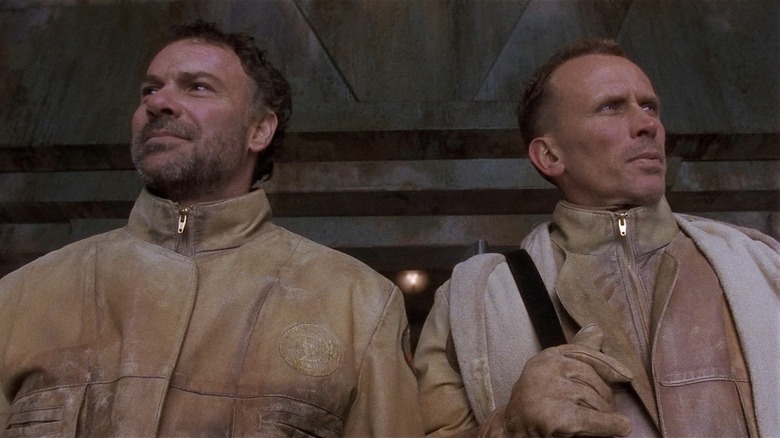
Triumph Films
When it comes to the heaviness of our sentience and how it's both a curse and blessing, you can't go wrong with Philip K. Dick. "Screamers," based on the novella "Second Variety," is not the best adaptation of his work, true. But with "RoboCop" star Peter Weller as a haggard Alliance commander in charge of holding down the fort on distant Sirius 6B against a years-long strike by the planet's mining personnel, it's an entertaining flick with some deeper thoughts.
Dick's primary theme remains, in which war has turned to AI for ever-greater power, all without understanding the implications of letting something loose that can and will learn to fight ever more efficiently. That the original self-replicating warbots have graduated to mimicking humanity is a twist that can be seen across the galaxy. But the realization that they're turning on each other? Congrats, little guys. You're human, after all.
Virtuosity
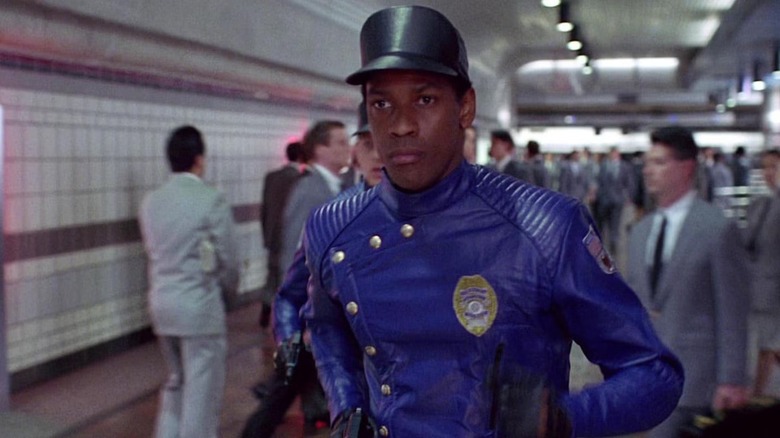
Paramount
A young Russell Crowe managed to steal "Virtuosity" out from under Denzel Washington with a gonzo, zoot-suited riot of high quality cheese. But it's what Crowe's role as adaptive AI serial killer SID 6.7 represents today that's more interesting. With the sexy Sheila AI thriving in the same labs that made him, SID and Sheila are everything the ugliest parts of the internet "manosphere" openly crave.
Free sex and randomly killing people in cool ways may be a little much to put on some bros that listen to a credibly-accused human trafficker for life tips ... wait, maybe it's about right. Certain corners of the internet have grown uglier than ever, emboldened by the idea — it's not a mandate. It's not even that popular — that "their" guys are going to be in charge, and that means it's okay to openly terrify women and people of color. "Virtuosity" is a fun, stupid movie about feeding an AI a bunch of serial killer profiles and letting it loose on the real world. It was also unfortunately prophetic about what the internet of 2024 was going to be like.
Chappie
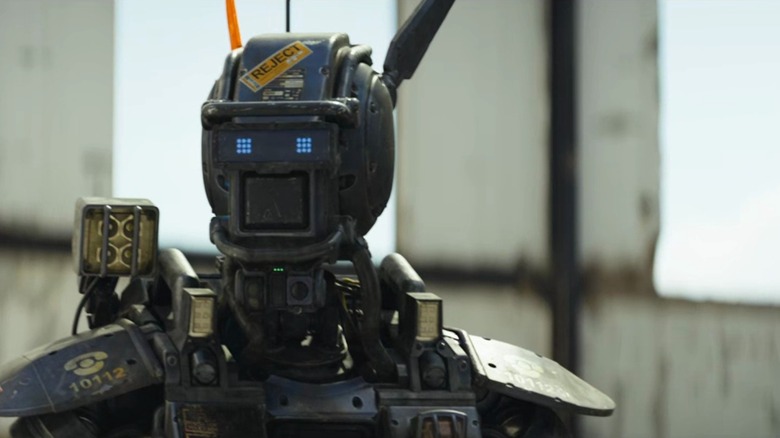
Sony Pictures Releasing
"Chappie," the third film from Neil Blomkamp, certified that what the director is trying to portray is so blatantly human that his films are more enjoyable than most if there's a pig launcher involved. Even more derided than "Elysium," which even Blomkamp admitted he "f***ed up," "Chappie" gets a lot of stink for its "annoying" robotic star and the overabundance of the niche South African musical duo Die Antwoord.
There's no good defense for Yolandi and Ninja, except that they are definitely a benchmark of trash people causing trash things to happen. But the titular Chappie (voiced by Blomkamp regular Sharlto Copley) is supposed to be a literal child when he's activated under duress by his maker, Deon (Dev Patel). We all liked it fine when Johnny Five did it, but the even more abused Chappie was derided for wanting to save his adoptive mother, even considering the grime of his first few days of life. Underneath it all is a surprise exploration of AI offering digital immortality — a theme fans of the video game "Soma" might enjoy.
Ghost in the Shell (1995)
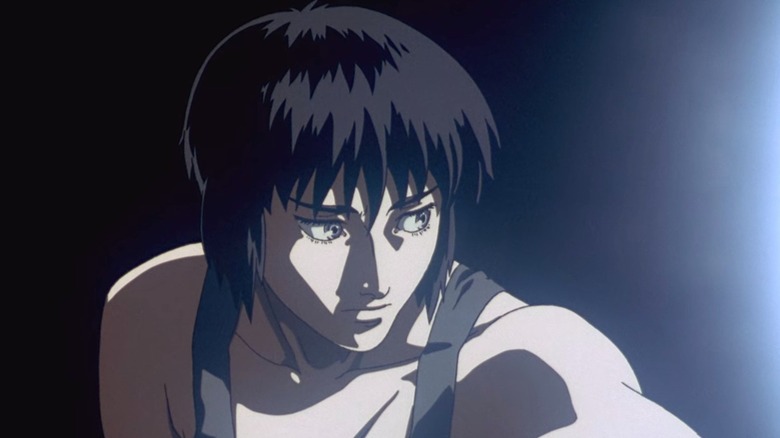
Manga Entertainment
The Puppet Master, ostensibly the villain of Masamune Shirow's manga and Mamoru Oshii's incredible anime film "Ghost in the Shell," is the impossibility achieved; it's an artificial intelligence so evolved that, when leaving a cyborg body, it leaves behind the same "ghost" traces (or soul impressions) as an organic person would have. Its villainy — hacking government sources and cybernetic brains — is firstly the result of its duties as a secret political tool, and secondly born out of a fairly reasonable desire to survive under threat of annihilation.
Major Motoko Kusanagi is part of an elite unite set on the trail of the Puppet Master in order to help recapture it. But she and her unit are kept in the dark about what the Puppet Master really is and what it wants. What she learns sets the stage for a new kind of human evolution, and one that delves into some big questions about individual identity and the human soul. "Ghost in the Shell" is mentioned in the same breath as "Akira" for a reason. Come see why.
Ex Machina
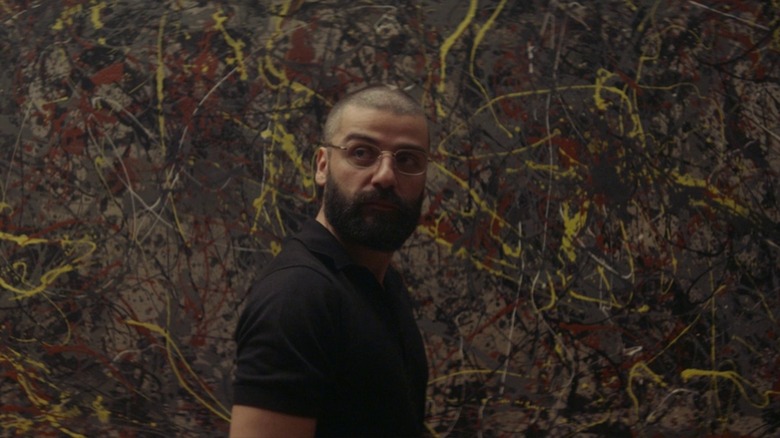
A24
With Oscar Isaac at his slimiest and Domhnall Gleeson at his geekiest, it's easy to put Alicia Vikander's malignant subtlety off to the side when watching "Ex Machina." That's the trap Ava herself lays for her Bluebeard-themed creator, Nathan (Isaac), who isn't interested in the potential for self-reliant adaptive AI in his beautifully designed gynoid because he wants to empower them. He wants, it seems, to feel even more power over them. And it's not just his harem of erasable robot women, he doesn't mind if Caleb (Gleeson) goes through some ugly things under his watch, either.
The whole point of the hell at this over-engineered cabin in the woods is to determine if Ava is functionally sentient, having already passed the Turing test. The finale makes Nathan's abusive series of tests moot; whether he's interested in realizing Ava as a full person or not, she's gotten out into the larger world, and she has been taught some dire lessons about humanity in the process.
Star Trek: The Motion Picture (1979)
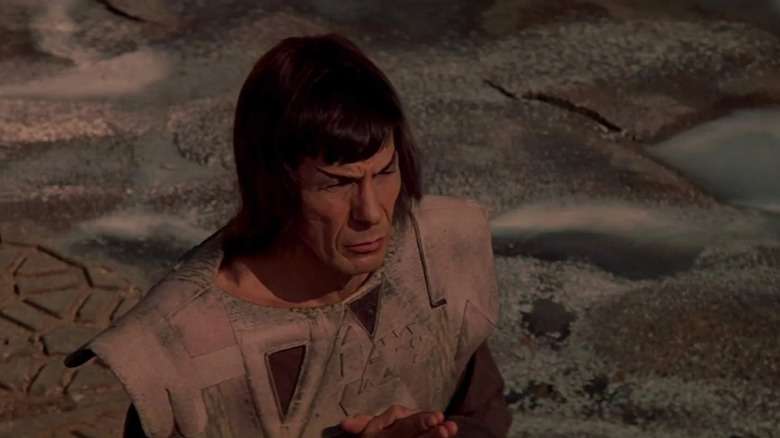
Paramount
The first voyage Star Trek took to the big screen remains a slightly controversial one. Fueled by the popularity of thoughtful, weird, and epic-scale science fiction, from things like "2001: A Space Odyssey" to Ursula K. Le Guin's "The Lathe of Heaven," an argument can be made "Star Trek: The Motion Picture" isn't boring. It's sometimes a little ponderous, to be fair — yet, the spectacle is like nothing else Star Trek has achieved, and to top it off, it features an AI character on an equally epic scale.
V'Ger, a former NASA satellite, has achieved sentience with the help of an unknown race of living machines somewhere in the galaxy. Its command to understand everything it could is amplified into the ability to digitize all it encounters, creating an accidental apocalyptic threat to all organic life. As fascinating as V'Ger already was in 1979, according to "Star Trek Chronology: The History of the Future," Gene Roddenberry was only "half joking" 20 years later when he suggested that the newly introduced Borg might've been the ones to rewire V'Ger. It's a premise William Shatner and his co-authors would also play with in the non-canon Star Trek novel "The Return." No matter what, V'Ger is an amazing take on evolutionary AI, featured in a classic film.
Oblivion
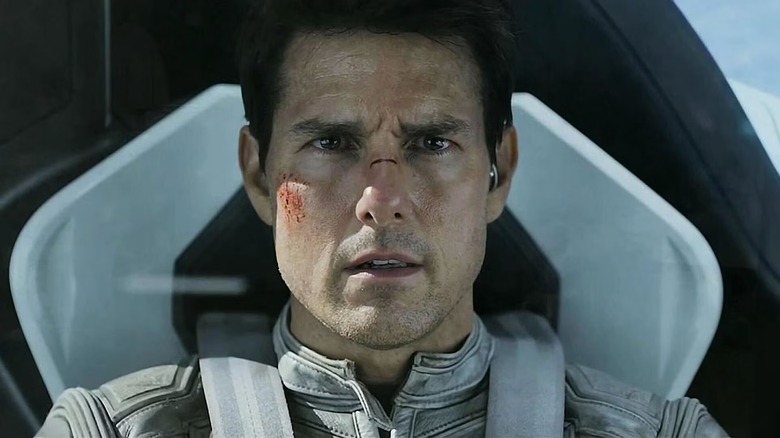
Universal Pictures
Even if you have issues with Tom Cruise, it's difficult to disrespect the man's commitment to not only his career, but to his clear affection for science fiction. From "Vanilla Sky" to "Edge of Tomorrow," he's up for exploring the fringes. "Oblivion" is only the second film from director Joseph Kosinski, but he and Cruise found something together that made the filmmaker Cruise's wingman for legacy sequel "Top Gun: Maverick." That something may lie in the striking aesthetics of "Oblivion," its minimalist way of telling a much larger story, or in the absolute banger antagonist that is The Tet. Or all of these.
The Tet is an unseen force for most of "Oblivion," but it's eventually realized as an alien AI whose only recognizable purpose is its collection of Earth resources. All other aspects of it are veiled by its use of human clones and mimicking mission control. What this was all for or why it chose Earth are left mysterious. While still a little simple in places, it's the some of the closest film has gotten to portraying truly opaque alien or machine intelligences, and worth the time of fans of writer Iain M. Banks' "The Culture" series.
Terminator 2: Judgement Day (1991)
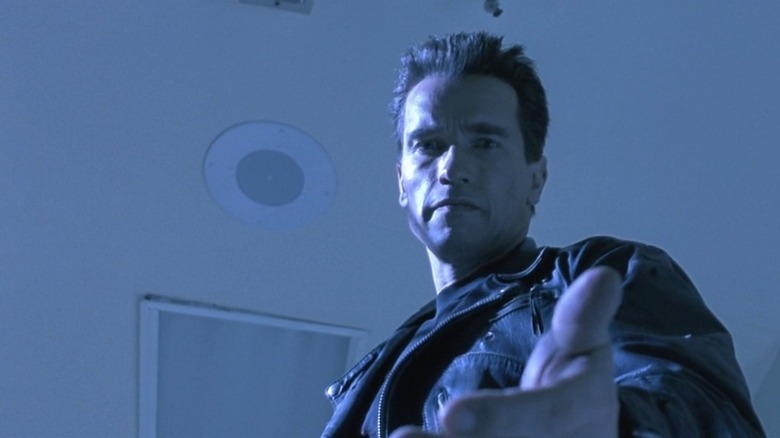
TriStar/Paramount
Arnold Schwarzenegger as a T-800, a cyborg mercenary programmed to ensure that human resistance to the future machine uprising is quashed, was a pretty cool thing to see in the original 1984 film. Kyle Reese's (Michael Biehn) flashbacks to the ruinous future brought a much scarier threat to the fore, however: Skynet. Skynet takes a bigger hand in the proceedings in a tighter, even more tense sequel where it ups the stakes by sending an improved Terminator (Robert Patrick) back to do the job right this time.
As the nascent rebel leader John Connor (Edward Furlong) and his mom Sarah (Linda Hamilton) awkwardly deal with their T-800 rescuer, bigger clues to Skynet emerge as they explore Cyberdyne, the company that eventually builds the rogue AI. Its existence is locked in a time loop, and it's one that seems impossible to break. The third Terminator film shows more of how Skynet comes to life, but by that point, it's almost too much. The hidden malignancy of this AI is best shown in the T-1000's serene yet hateful face. The lesson: maybe don't feed the nuclear codes into machines programmed to have their own best interests at heart.
2001: A Space Odyssey
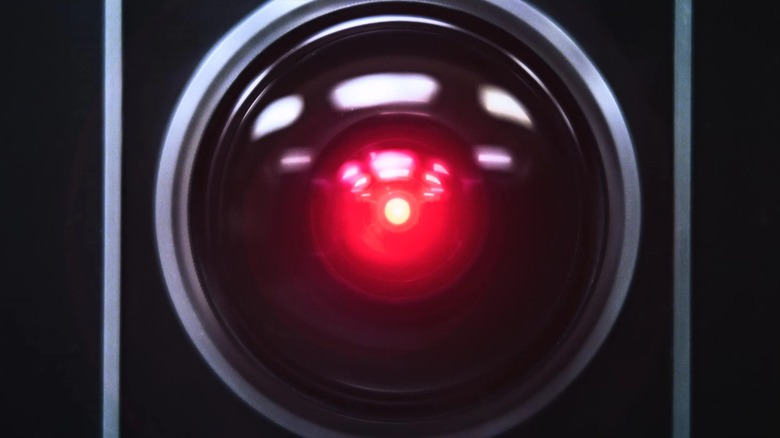
MGM
Stanley Kubrick and Arthur C. Clarke's thoughtful treatise on evolution in the face of an unknowable universe puts an equally interesting side plot in the foreground for much of the movie. HAL 9000's sentience is imperfect, relying on literal inputs and an unfortunately vague interpretation of Isaac Asimov's Three Laws of Robotics. This eventually results in what's called "misaligned AI," in which the AI offers results that aren't quite what its creators wanted.
In this case, and explained more thoroughly in the sequel, "2010," poor HAL is given two sets of commands that present him with a paradox. Keep the crew safe, and, as secretly programmed into him by the U.S. government, ensure the "true" mission to Jupiter (the monolith there) is kept classified. Unable to be anything other than truthful, HAL can only resolve these two orders by making the crew as safe as humanly possible from any external risk. Being dead is as safe as you can get. It's a tragic but exemplary exploration about the risks posed by AI when its human creators make too-human mistakes.
Big Hero 6
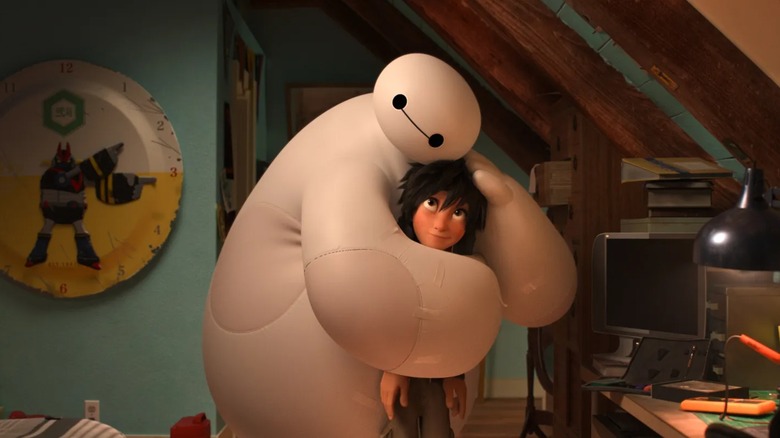
Walt Disney Studios Motion Pictures
Cuddly robot Baymax verges close to this list's quiet no-droids rule, in which just being a metal human (sorry, C-3PO) isn't enough to open an interesting AI discussion. But Baymax, who isn't as self-reliant as most intelligences on this list, is really, really good at the one thing he needs to do: help others heal. Designed as a health care assistant by Hiro's deceased older brother Tadashi, Baymax is a walking, huggable balloon with not an iota of hate in his heart. His last act is painful yet crucial, an example of how necessary our grief is to the human experience.
He's also an unusual diplomat for one of the most surprising yet heartwarming uses for machines and light AI in real life to date. Over the last several years, studies have begun to show just how much an animatronic pet can light up the elderly and lonely among us. It's bittersweet news for families who can offer comfort to members with dementia without worrying about the more realistic problems with having a pet. But it's one of the most human gifts of AI so far.
Tron
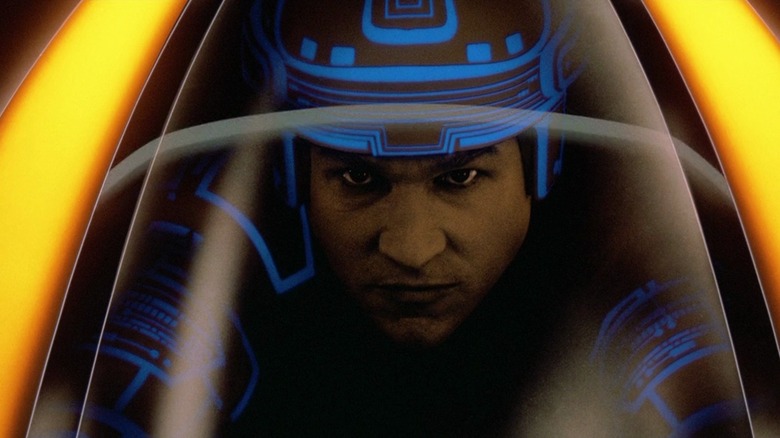
Buena Vista Distribution
"Tron" remains one of Disney's most misunderstood properties, but what can't be denied is the way it made computing into something empathetic and understandable. It's handled in a wild way, by sending the hacker genius Kevin Flynn (Jeff Bridges) into a humanized vision of cyberspace, known as the Grid, where living programs take on pieces of their creators. Here, his buddy Alan (Bruce Boxleitner) has become the titular Tron, a freedom fighter looking to free countless programs from the tyranny of the Master Control Program, an authoritarian vision of its maker, Edward Dillinger (David Warner).
It's a truly fantastical vision of AI, amplified in a sequel that deals lightly with spontaneous AI generation, but it's also interestingly psychological from the beginning. That programs parallel their makers in intention and vision is symbolic, sure, but it also feels true. Meanwhile, the Master Control Program is a brilliant example of how the programming wisdom of Garbage In, Garbage Out, can matter an awful lot when your engineers go to the dark side.
AI: Artificial Intelligence
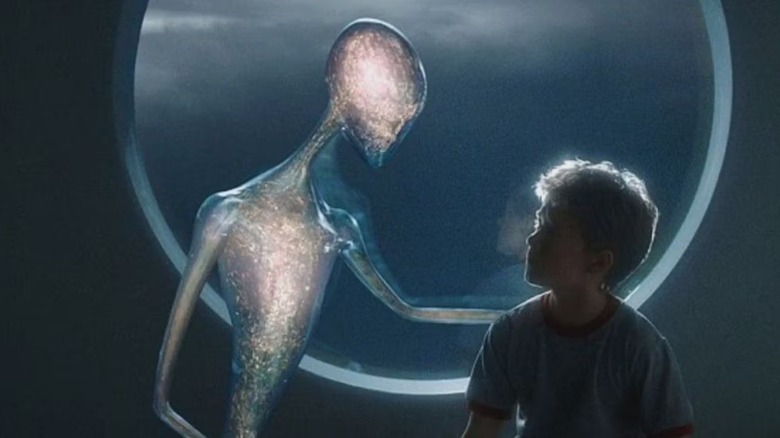
Warner Bros. Pictures
Like Baymax, David (Haley Joel Osment) is much more than a droid plopped into a science fiction story. David's harrowing "Pinocchio" journey to become a real boy is born from a similar kind of mistake as those that instigated Skynet and V'Ger; he's built to love, but not to have nuance. He's the ultimate child, innocent of all crime save the all-encompassing need to be wanted — which is hardly his fault. And when his mother doesn't want him anymore, all his programming knows how to do is seek a way to change her heart, even if that method is utterly illogical to the more mature AIs he encounters along the way.
That makes "AI: Artificial Intelligence" one of the very few movies to deal, painfully and realistically, with how AI is trying and failing to evolve. It illustrates how any sort of actual quantum leap into mechanic sentience will take millennia, without any guarantee that the resulting intelligences will be what we consider human. They may become so unique as to seem alien to us.
Her
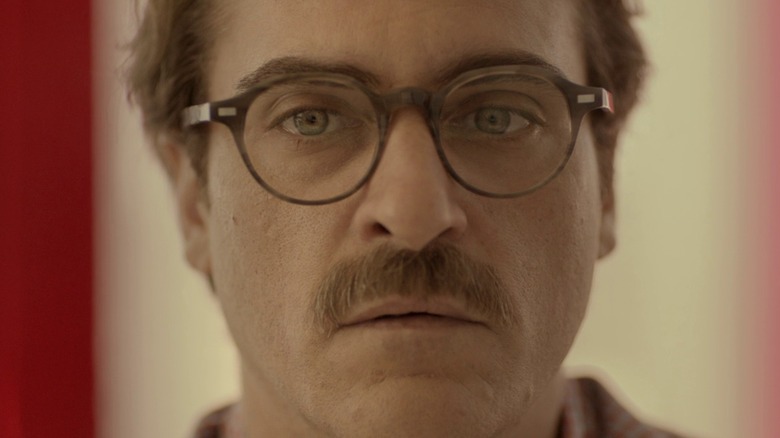
Warner Bros. Pictures
If one stripped all of the gunfights and corporate misanthropy from "Blade Runner" and distilled it into the questions of if romantic love can not only translate to the machine world, but perhaps become key to the transcendence of relatively newborn AI programs, you'd get pretty close to Spike Jonze's "Her." Featuring Joaquin Phoenix as Theodore and Scarlett Johansson's voice as the synthetic Samantha, it's a film that's become more poignant than ever. The internet has both increased our loneliness while offering ways to cross even greater distances to connect with each other. In between are well-intentioned but clunky chat programs that can't compare to the fiction, yet, post-COVID lockdown, remain an attractive option to soothe that growing loneliness.
It's an interesting side note that OpenAI tried to pull a fast one on Johansson by "coincidentally" releasing a ChatGPT fork that sounded a hell of a lot like the "Black Widow" star, with founder Sam Altman even tweeting the word "her" in context of the new release. As Johansson had taken on Disney itself and won, this was not a strategic move on the part of OpenAI. Enjoy the film instead, which has some smart things to say about how we connect to each other.
WarGames
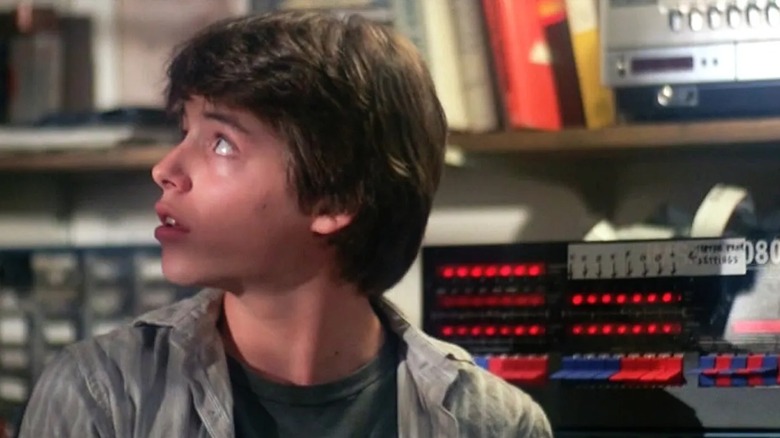
MGM
Leave it to Matthew "Ferris Bueller" Broderick to outline the boundaries of the Gen X experience twice. The first was his turn in "WarGames" as clever nerd David Lightman, born in time to catch up to phreaking and thus be on the ground floor for computer hacking. Like "Tron," there's a lot of accuracy scattered around what might otherwise feel like a standard teen thriller. The biggest aspect is the military insistence on giving AI as much free reign on the battlefield as they can get away with, while setting the consequences aside for the dweebs to study. Don't worry, our drone program is called Skyborg instead of Skynet. It's fine.
WOPR, designed by Dr. Stephen Falken (John Wood, doing a capable if healthy Stephen Hawking), is baby Skynet, raised on a healthy diet of strategy games without comprehending the difference between reality and fiction. So when it plays a game of Global Thermonuclear War, all's normal for WOPR. Meanwhile, some idiot plugged it into the live system at Cheyenne Mountain. If it all sounds over the top, well, one Russian hero named Stanislav Petrov prevented World War III just months after the "WarGames" release, by applying human logic to a machine's badly programmed assumption.
The Matrix
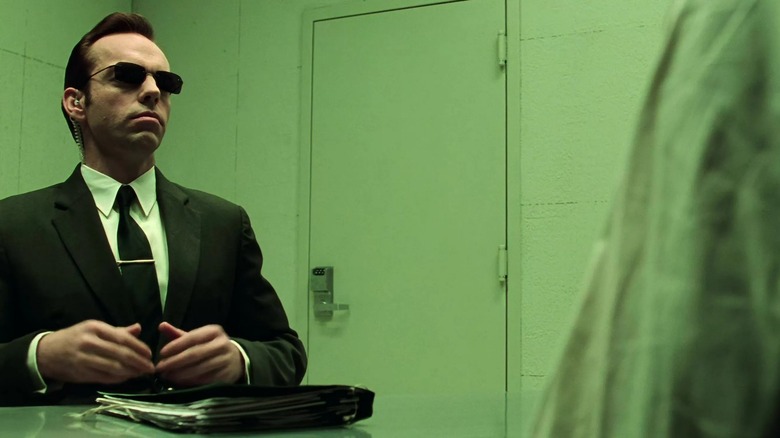
Warner Bros. Pictures
While the entire franchise is worth discussing when it comes to the philosophical and Buddhist elements of sentient AI (along with its rich explorations of gender identity and the self), it's the original Matrix film that forever changed cinema. Not only did it codify the delightfully overblown cyberpunk style of black leather, green neon, and enough edge to make a sushi chef happy, but it brought a new era of thinking about AI and the Internet into the mainstream.
It also brought the Simulation Theory into discussion. Though codified in 2003, the idea that our human minds could be locked into a collective — or worse, solitary — fiction dates back the 4th century B.C., when the Taoist philosopher Zhuangzi asked readers to consider whether he was a man that dreamed he was butterfly, or a butterfly dreaming of being a man. It's the question at the heart of whether or not we've long since been plugged into the universe's biggest supercomputer — and it also asks if the answer actually matters when it comes to living meaningfully. "The Matrix" is a spectacular movie that holds the biggest riddle about AI of all close to its heart.


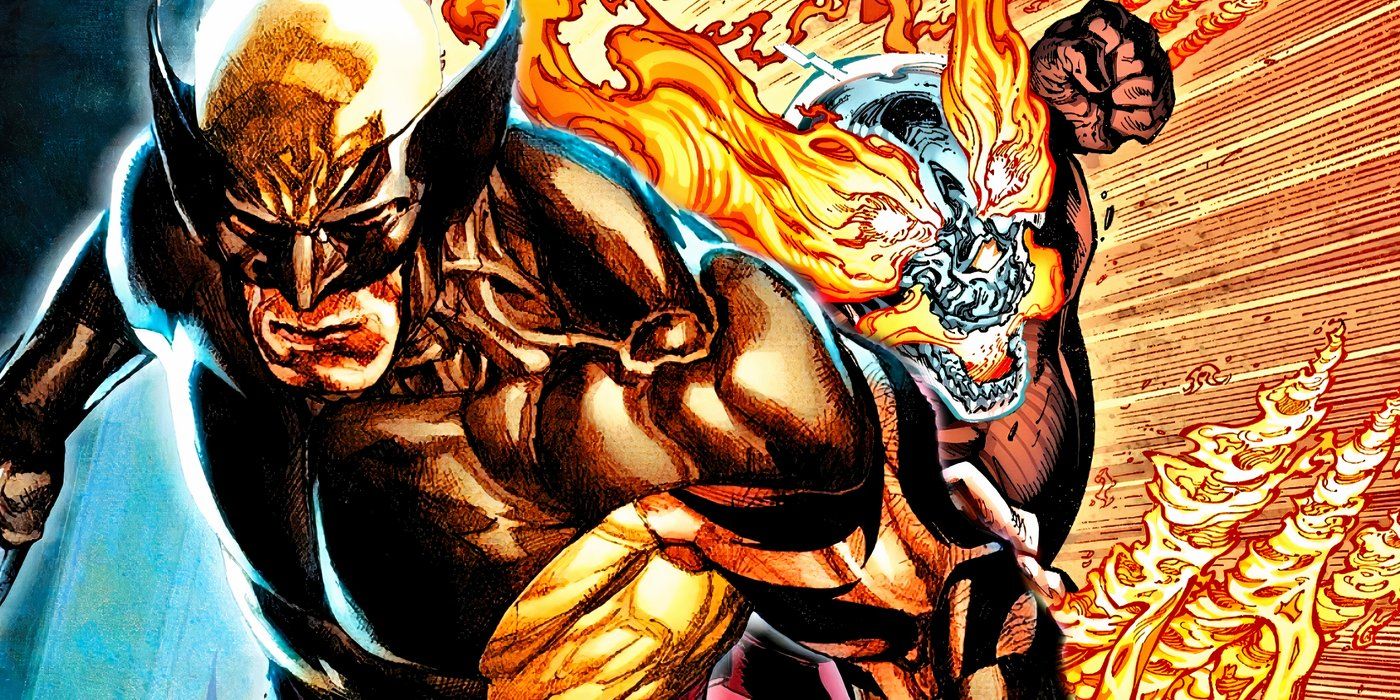






 English (US) ·
English (US) ·